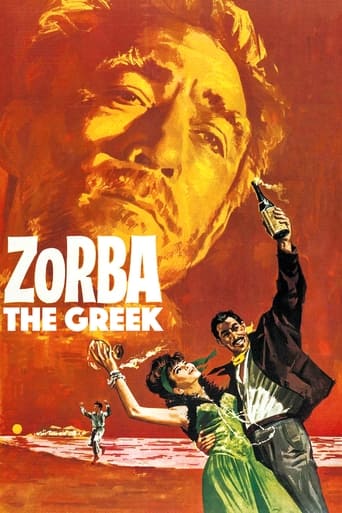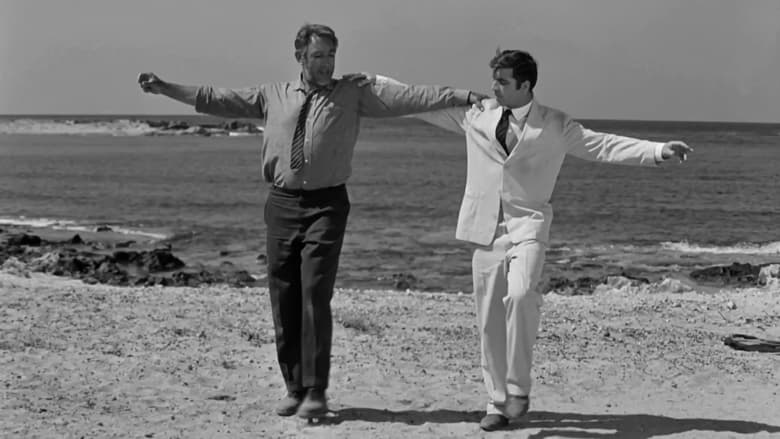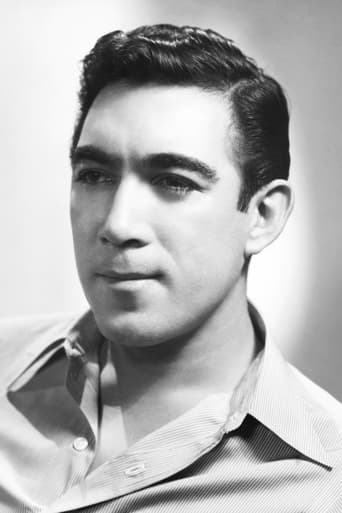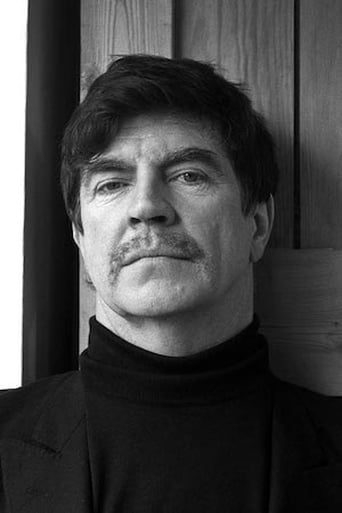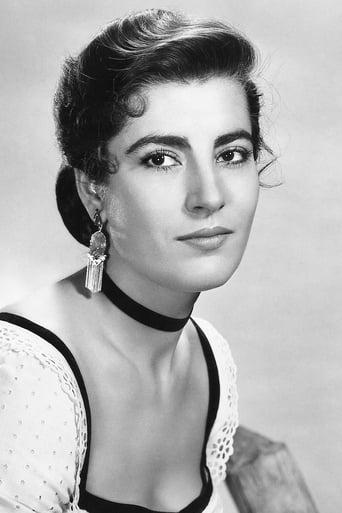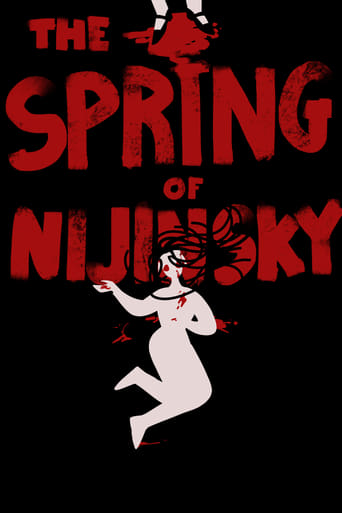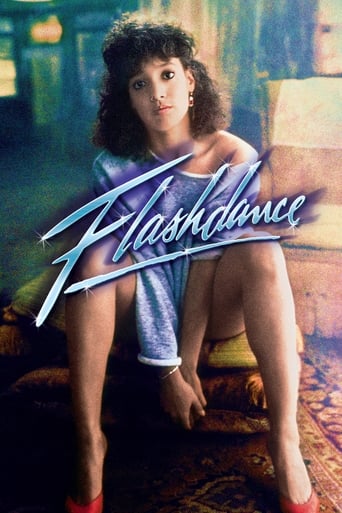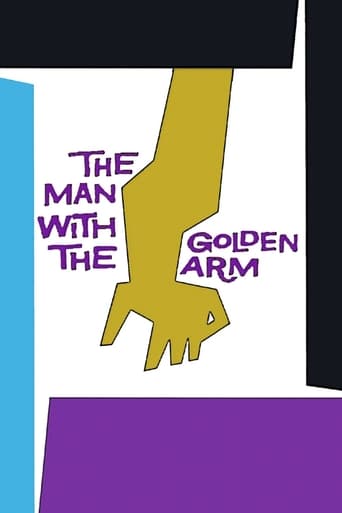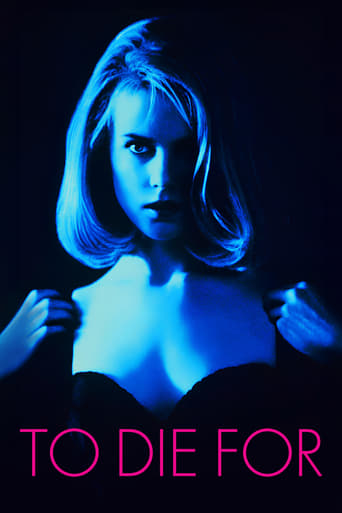Zorba the Greek (1964)
An uptight English writer traveling to Crete on a matter of business finds his life changed forever when he meets the gregarious Alexis Zorba. Preserved by the Academy Film Archive in partnership with Twentieth Century Fox Film Corporation in 2004.
Watch Trailer
Free Trial Channels
Cast


Similar titles
Reviews
SERIOUSLY. This is what the crap Hollywood still puts out?
Not sure how, but this is easily one of the best movies all summer. Multiple levels of funny, never takes itself seriously, super colorful, and creative.
A clunky actioner with a handful of cool moments.
A great movie, one of the best of this year. There was a bit of confusion at one point in the plot, but nothing serious.
"Zorba the Greek" is a spellbinding ride driven by the ultimate larger-than-life character. I didn't even know the film "invented" this dancing style that seemed like belonging to Greek traditions since the dawn of ages. But this is the essence of Zorba: something that feels instantly timeless and universal. It is only fitting that the most universal and timeless of all Hollywood actors would play a guy like Zorba.Anthony Quinn isn't just a body but a soul that infuses the story with an inspirational lust for life, curing any possible flaw because, like life, the film and the story are indeed, flawed. I suspect "Zorba the Greek" will leave most viewers infuriated, and frustrated by the plot loose ends, and it is to the credit of Quinn's extraordinary performance that when the film comes to an end, you just want to put all these flaws in a bowl and crash the whole thing and dance over the shattered pieces. Yes, there is no plot, this is all a fraud, even, good old Alexis Zorbas is one: he pretends to be a good cook, miner, adviser and womanizer but none of his projects ever succeed, yet to call him a loser would be like calling Hercules a weakling.This is man with a spirit as expansive and large as his physique, with a predisposition to embrace people, to grab things, because what other uses can hands and arms are of? His soul is shaped of Dionysian hedonism and contagious idealism, to which the uptight and meek Greek-English writing-blocked Basil (Alan Bates) immediately surrenders. There's something just catching with Zorba's charisma and if you go to a traditional Freak village, a company like Zorba is more than welcome. And Alan Bates plays a difficult role because he's the perfect foil to Zorba's extravaganza and exuberance, but he's not dull and passive either, he's a sponge absorbing much of this lively zest without compromising himself. His strength is to stay true to himself. And this is why Zorba instantly likes him, because he knows he can be true to himself as well. As fragile as their blooming friendship is, at least it is based on sincerity. Now, to the story.Normally, the goodhearted newcomer changes people's lives for the best, and during his journey, he picks up a thing or two. It's called a story, a narrative, a character's arc, and "Zorba the Greek" misleads us to this certitude. But this is too smart a plot for such contrivances, the story embraces the soul of the Greek theater, it is a tragicomedy where tragedy upstages comedy many times. And two outcast women, both prisoners of their troubled pasts, wear the "sad masks": Madame Hortense (Lila Kedrova) a French ex-prostitute and local hotel manager who falls for Zorba's charm and the Widow (Irene Papas) who's struck by the stranger's niceness, she who's used to be the center of male menacing and luscious stares, including the love-stricken village idiot.Papas' performance is the antithesis of Kedrova. Kedrova, who won the Oscar for her performance, says too much and becomes a childish creature eager to hear whatever can please her. Papas says nothing but the pain is even deeper, and her soul harder to reach, but that makes her intimate scene with Basil even more powerful, she might be more vulnerable than Hortense after all. But we can't tell what is behind Basil's mind, is he infatuated, curious or does he just follow Zorba's admonition about the "greatest sin" according to God: "If a woman calls a man to her bed and he will NOT go!". Zorba follows his own advice and during a special mission to buy the furniture for the reopening of Basil's mine, he irresponsibly uses his job's money to have a good time. Basically, men's impulses and weaknesses end up killing two women they pretended to "love".In a horrific scene, the Widow is beaten to death by a vengeful mob (after the village idiot committed suicide) and has her throat slit to answer for her "lost honor". Madame Hortense dies of pneumonia (contracted during a rainy improvised wedding) and is posthumously victim of black-clad hysterical women who come to steal her belongings like vultures finishing a corpse. She doesn't even get a funeral and Zorba is powerless. Even Basil couldn't outfight the men who killed the Widow, call him a wimp, coward or lucid, he's just not cut for such a lifestyle. The portrayal of the villagers, men and women can strike as violent and too unbelievably archaic, but I don't think a Greek director could be accused of being biased against his own people.Mihalis Kakogiannis is the director, and there's something so vibrant in his documentary-like style, such a raw energy that it seems to be part of the Greek genes, some parts reminded me of Cassavetes' movie, mostly focused on action, graphically sensual and sexually vocal, the film was ahead of its time, and provocatively unsatisfying as so little has changed in the end. Even when the big mine project fails (whatever it was), this is so relative compared to the more tragic losses that all you can do is laugh at them, because that's what life is about, people try, love, fail, but if in the end, you dance in a beach with your best friend, there might still be hope for the human race.The film missed a Best Score nomination for Mikis Theodorakis, although it invented a dance, Anthony Quinn missed the Oscar, despite the role of a lifetime, the mention of his name alone makes this escalating sirtiki tempo resonate in your mind, Hollywood even believed "My Fair Lady" was the better picture, but all these failures are overshadowed by the film's real success: its inspirational message, its hymn for life captured in that last ending scene and its infectious urge to dance.You know what, Zorba is my kind of film. Whoopa!
The music from Zorba the Greek has been much imitated its become a cliché of a certain part of Greek life and strips the film and the novel it is based on part of its underlying dark themes.I was surprised that the film was based on the novel by Nikos Kazantzakis, author of The Last Temptation of Christ. Knowing that I knew in an instance that this was going to be more than some cod Greek feel good drama/comedy.Alan Bates plays Basil, a stiff English writer of Greek origin who has come to Crete where he has inherited a mine. On the way there he meets Zorba (Anthony Quinn) who is looking for a job and Basil takes a chance on him and they sail some choppy waters.The film is episodic filmed in startling black and white photography.Basil with whatever money he has entrusts Zorba to get the mine working. Zorba charms the well to do but lonely old French lady, Madame Hortense (Lila Kedrova). He also charms the local monks at the nearby monastery to help get the mine working. Basil is attracted to the ravishing wild widow (Irene Papas) someone every male in the village is also attracted to. She only has eyes for Basil but its a relationship that is imbued with tragedy as we come to understand the ways of local village life in Crete, something Zorba understand but not Basil. This also comes to the fore when Madame Hotense dies and local villagers descend like vultures to strip her house to prevent the government getting it all.A lot of the film is about Basil trying to understand Crete life. He is a genteel man of letters, shy and rather gauche. Just watch how hesitant he is with talking to the wild widow.Zorba on the other hand is passionate, life affirming, loyal, brave, foolhardy, hot headed and reckless. He also understands people and the underlying darkness of the villagers.The film is a drama with tragedy, comedy, music and dance. Bates, Quinn and Irene Papas are very good but the film is actually rather light on plot and Bates reaction when the widow is attacked and the aftermath is rather perplexing. Lila Kedrova who won an Oscar is also hard to understand.
This movie is not for everyone. Many people may not understand it. I am from Greece and although I am very young and I have never experienced similar incidents, I have seen old Greek movies and I have listened many stories from my grandparents and parents.Yes that was the life in our villages years ago, when people were spontaneous, simple but also reckless and furious. Things changed, I don't know in a bad or in a good way because maybe now we are more ''civilized'' (if someone can define that word) but many things are lost.Anyway when this movie ended, I had a smile in my face and an optimism... It shows life as it is with ups and downs, with happiness and sadness. Even if there was a little madness, that's life and all we can do after all... is dance...
Anthony Quinn's title character is a force of nature, and the rest of the people in the movie are tossed and buffeted helplessly by his whims. The writer played by Alan Bates is stunned into almost catatonic inaction by the strange, harsh society he encounters on Crete. Why he comes, and why he stays despite unnerving and sometimes horrific experiences, are questions that the movie raises but cannot answer. The pervasive unpleasantness of the place dims even Zorba's spirit until his only option is to embrace his powerlessness over his surroundings. Irene Papas, who had shown great chemistry with Quinn in "The Guns of Navarone" (1961) is tragically underutilized here.

